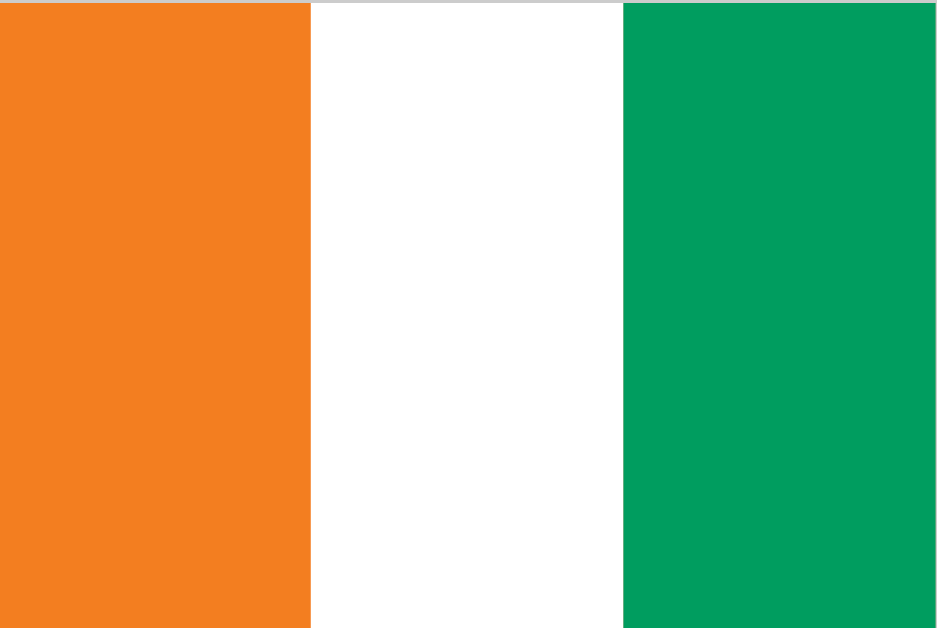
Sustainability Efforts
Country: Ivory Coast (Côte d'Ivoire)
Explore sustainability efforts in Ivory Coast (Côte d’Ivoire). The United States Environmental Protection Agency (“EPA”) said it well when they state:
“Sustainability is based on a simple principle: Everything that we need for our survival and well-being depends, either directly or indirectly, on our natural environment. To pursue sustainability is to create and maintain the conditions under which humans and nature can exist in productive harmony to support present and future generations.”
About Ivory Coast (Côte d'Ivoire)
Ivory Coast, officially known as the Republic of Côte d’Ivoire, is a country located in West Africa. It is known for its rich cultural heritage, diverse ethnic groups, and vibrant music and dance traditions. The country is one of the largest producers of cocoa and is also known for its agricultural exports such as coffee, palm oil, and rubber. Ivory Coast has a mixed economy with sectors including agriculture, industry, and services. The country has faced political and social challenges in the past, but it has made significant progress in recent years towards stability and economic development. Ivory Coast is also home to beautiful national parks, stunning coastlines, and a variety of wildlife, attracting tourists from around the world. Sustainability efforts in Ivory Coast (Côte d’Ivoire) will enhance the country’s future.
Sustainability Efforts
Toggle each button below to “open” and “close” the presented data.

Poverty: Cote d'Ivoire has seen remarkable economic progress in recent years, with GDP growth averaging around 7-8% since 2012. Significant investments in agriculture, infrastructure, and services have lifted many out of extreme poverty. However, much remains to be done as a substantial portion of the population still lives below the poverty line.

Hunger: As the world's largest cocoa producer, Cote d'Ivoire plays a crucial role in the global food supply. Efforts are being made to diversify agriculture, improve crop yields, and ensure food security for its local population. Investment in sustainable farming practices is a priority to reduce hunger.

Healthcare: The Ivorian government is steadily increasing its healthcare budget, focusing on improving maternal and child health, combating HIV/AIDS, and enhancing the overall healthcare infrastructure. International partnerships play a pivotal role in advancing these healthcare objectives.

Education: Literacy and enrollment rates have been steadily climbing in Cote d'Ivoire. The country is investing in teacher training, curriculum development, and infrastructure upgrades to ensure that every child has access to quality education.

Gender Equality: Women's empowerment is a focal point for many NGOs and government programs. Initiatives to promote women in leadership roles, support female entrepreneurs, and combat gender-based violence are gaining momentum.

Clean Water Sanitation: With support from international partners, Cote d'Ivoire is taking significant steps to improve access to clean water and sanitation facilities. Rural areas, in particular, are seeing investments in infrastructure to reduce waterborne diseases.

Affordable Clean Energy: The nation is exploring its renewable energy potential, especially in solar and hydropower. With the right investments, Cote d'Ivoire could significantly increase its clean energy production, reducing its reliance on fossil fuels.

Economic Growth: Fueled by its rich natural resources, notably cocoa, coffee, and palm oil, the country's economy has shown resilience and growth. Additionally, tourism, technology, and services sectors are seeing increased investments.

Industry Innovation: Special economic zones, technology hubs, and supportive policies are being established to boost industrial innovation. There's a drive to modernize traditional sectors and promote tech startups.

Reduced Inequalities: While regional disparities exist, initiatives targeting underdeveloped areas and marginalized communities are in place. The government is keen on inclusive growth, ensuring all regions benefit from the nation's prosperity.

Sustainable Cities: Urban planning in cities like Abidjan focuses on sustainability, with investments in public transport, waste management, and green spaces. The goal is to make cities livable and resilient to environmental challenges.

Responsible Consumption and Production: Efforts to promote responsible farming, especially in the cocoa industry, are in place. Additionally, awareness campaigns on waste reduction and recycling are gaining traction.

Climate Action: Recognizing the threats of climate change, Cote d'Ivoire is committed to reducing its carbon footprint. Reforestation programs and conservation initiatives are part of the broader strategy to combat environmental degradation.

Life Below Water: With a rich coastal ecosystem, the country is investing in marine conservation. Sustainable fishing practices, mangrove restoration, and marine biodiversity protection are areas of focus.

Life on Land: National parks and protected areas cover a significant portion of the country. Efforts to curb deforestation, promote reforestation, and protect endangered species are in place to maintain the rich biodiversity.

Peace and Justice: Following a period of political instability, peacebuilding initiatives, governance reforms, and efforts to strengthen the rule of law have been central. These endeavors aim to ensure lasting peace and social cohesion.

Partnerships to achieve the Goal: International collaboration is vital for Cote d'Ivoire's sustainability goals. Partnerships with NGOs, donor countries, and international organizations amplify the impact of local initiatives and drive sustainable development.



